Learning and knowledge sharing are fundamental to the LHSS Project. We invite you to search LHSS knowledge products and resources for the latest approaches, insights, and learning in the field of integrated health systems strengthening.
The COVID-19 pandemic placed extraordinary stress on the Kyrgyz Republic’s health system and health care providers, revealing the need for new approaches that would address the immediate needs brought on by the pandemic and contribute to the country’s health system resilience.
This report presents findings from December 2022 assessment of medical-grade liquid oxygen capabilities and availability for use in health facilities in the Kyrgyz Republic.
This brief presents the achievements of two NGOs that received grants to conduct risk communication and community engagement work under the LHSS Project in the Kyrgyz Republic. It examines the grants’ capacity strengthening impact on the two organizations, describes lessons learned, and provides recommendations for donors, implementing partners, and local government partners implementing similar programs.
This brief presents work completed under the LHSS Kyrgyz Republic Activity Intervention 4: Enhance Cold Chain System. LHSS worked with key government stakeholders, including the Republican Center of Immunoprophylaxis, to digitalize and update components of the country’s vaccine registry and complement these updates by adding additional functionalities for cold chain tracking and management.
This video was followed by a presentation from USAID’s M-RITE project and several sessions on the breadth and depth of the LHSS Activity’s interventions.
This document offers a one-page summary, in English, of a full-length trainer's guide for training Kyrgyz health care providers on interpersonal communication related to COVID-19 vaccination.
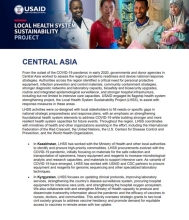
This fact sheet provides a summary of activity progress in Central Asia as well as results and impact.
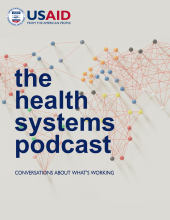
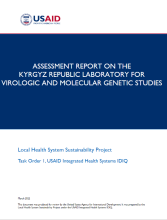
LHSS Kyrgyz Team presents findings from August 2021 assessment of Kyrgyz Republic's state-run Laboratory for Virologic and Molecular Genetic Studies.
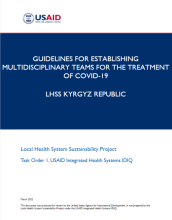
This report describes the multidisciplinary team approach, and presents guidelines for establishing, training, and monitoring and evaluating multidisciplinary teams.
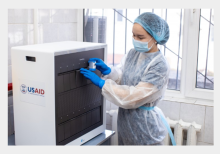
This assistance is provided under USAID’s Local Health System Sustainability program. Since the start of the coronavirus outbreak, USAID has provided more than $7 million USD to help the Kyrgyz Republic fight the COVID-19 pandemic.
LHSS worked from April 2020 to November 2022 to address the immediate needs of the Government of the Kyrgyz Republic related to prevention, detection, and response to the COVID-19 pandemic. This fact sheet summarizes focus areas, results, and impact.
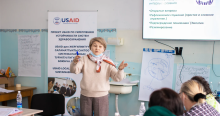
Health workers play a central role not only in providing continued care for COVID-19 patients, but also in promoting vaccination and combating misinformation, with evidence-based health education.
Panelists discuss the rapid evolution in knowledge of how to best care for critically ill COVID patients, how countries are quickly adapting to ensure improved care for patients, and lessons learned.
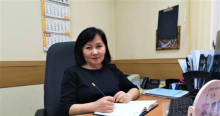
The Universal Nurse Model merges functions of three types of physician-directed nurses into one patient-centered nursing role, allowing better health outcomes with the same number of doctors and nurses.
